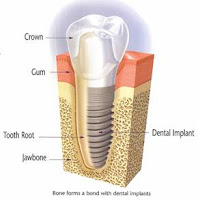Starting working as a dentist in Germany
Hello dear collegues ,
In this article i wanted to write down a few things about moving to Germany and starting working as a dentist. It is compelling as it is the dream of lots of young professionals to move over to the stable and better income of Germany combined with the learning opportunities , but from the other hand there is the 'german language' , 'german bureocracy' and 'german weather' which can be a big obstacle.
I hope you can find some hints and leading points in my personal experience.
I travelled to Berlin in September of 2015 , two weeks after i received my diploma and i couldn't speak the language almost at all, except from 5-10 words that i was remembering from the german school course from back in the days. I have to confess, i had a big advantage in the start , as i was allowed to live for small money at an aunt of mine.
First thing i did was, finding a school where i could study intensively (25h a week) the languageso i could get the B2 or even better the C1 language certificate that is needed in order to apply as a dentist to the dental council in Germany.
Secondly i had somehow to make some small money , couldn't rely on my parents for ever . Therefore i started sending CVs as a dental assistant in all (or almost all) the dental offices in and around Berlin. It was really hard at the beginning as most of them couldn't understand why a dentist would like to apply for an assistant position and at the same time couldnt speak properly the language. For my good luck a dentist that was speaking my language took me in . There i would work for 18 hours a week and make 666! € Brut per month with payed health insurance, i could learn slowly how the german insurance system works and at the same time learn the german dental terminology among with the language studies.
7 months later i had the B2 certificate in my hands and the real torture was just starting. I had to apply for the Zahnärztliche Approbation to the german ministry of health. The papers they needed were :
- Diplom translated with Hague Stamp (from the country of origin)
- Attachment to the Diplom with notes translated with Hague stamp
- Booklet with all the subjects and content of studies
- Studies conformity document translated with a Hague stamp
- Criminal record from your country and/or country of studies and/or Germany translated with Hague stamp
- Certificate of good standing from the countries you have worked in the past
- Copy of id or passport
- Medical certificate which confirms that you are healthy mentaly and physically in order to practice the profession
- CV
- Birth certificate translated with Hague stamp
- Fee of 192€


Comments
Post a Comment